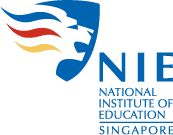Dr Leonel Lim, one of the winners of the 2018 American Educational Studies Association Critics' Choice Book Award, demystifies the discipline of curriculum studies and shares about the motivations for his research.
Dr Leonel Lim is a proud recipient of the 2018 American Educational Studies Association (AESA) Critics' Choice Book Award – an honour reserved for the most outstanding publications in the field of educational studies each year. His monograph titled Knowledge, control and critical thinking in Singapore: State ideology and the politics of pedagogic recontextualisation documents his research on critical thinking in Singapore schools and explores issues in the sociology of curriculum and the politics of curriculum reform. | Read More |
"This was my first attempt at a book-length monograph," the Assistant Professor at the Curriculum, Teaching and Learning (CTL) Academic Group shared candidly. "I remember being saddled with multiple pressures, such as meeting publisher deadlines, ensuring coherence of the narrative across chapters, attending to editing and copy-editing details, etc. What was to happen to the book after it was published remained an afterthought. So I'm really humbled that the book was picked up for the AESA award. The AESA is one of the most established academic organisations devoted to research in the foundations of education. I'm heartened to know that the issues raised in the book, while located in Singapore, carry significance for an international audience."
He continued, "The fundamental questions in curriculum studies are : ‘What knowledge is of the most worth?' and ‘What should schools teach?' Researchers like myself, who adopt a sociological approach to working on these questions, attempt to understand how the knowledge taught in schools embody multiple social perspectives and how it can be made more relevant and meaningful to students."
Despite his award-winning work, Dr Lim considers himself somewhat of an accidental academic. "Perhaps because I grew up under very working-class conditions I never considered pursuing a PhD, much less a PhD overseas with its prohibitive costs," he said. However, things started to change for Dr Lim when, as a primary school teacher, he embarked on a Masters degree at NIE.
He explained, "CTL was new at the time, and given some of the issues I was addressing in my Masters dissertation, I was encouraged to take up the NIE-NTU Overseas Graduate Scholarship. To this day I'm very grateful to be given the opportunity and haven't looked back."
Dr Lim recollected his experience being assigned to teach an EM3 class in his first year as a trained teacher in a primary school. "It was exhausting – physically, emotionally and intellectually – as my colleagues and I worked to better relate our teaching to the experiences and challenges of our students in what was at that time the academically weakest track," he admitted. Yet for Dr Lim the experience shaped his interest in curriculum research in powerful ways. As he reveals, "I wanted to understand the ways in which knowledge is socially situated, and how the curriculum as a social artefact is constructed and experienced."
Indeed, much of Dr Lim's research continues to be motivated by interactions with students in his graduate and leadership courses. "Paying careful attention to how they engage with their course readings, and the issues they raise in relation to the work they are doing in schools, gives me a sense of the research questions that need to be asked and where answers might come from. As professors, it is difficult to overstate the debt owed to our students in terms of the insights they so generously bring into the classroom," he explained.
As NIE readies itself for the challenges of the future, Dr Lim believes it is worth remembering that many central issues around the field of curriculum research are age-old and enduring: "A good deal of these involve questions over how official curricula are constructed – in particular how decisions to do with the selection, classification, distribution, transmission and evaluation of the knowledge that a society considers to be public reflect extant societal relationships, ideologies and divisions. My view is that these questions are critical in helping educators develop curricula that are responsive to the exigencies of the future, and I hope that researchers in a Future-Ready NIE will continue to engage with them," said Dr Lim.





